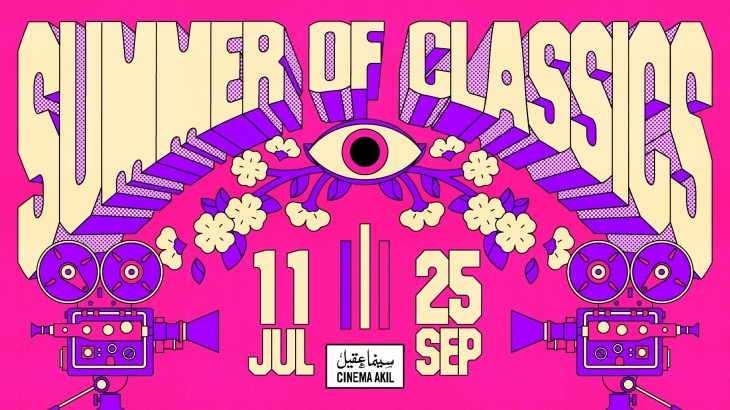
This year, we sail together through cinema’s most enduring treasures.
Spanning a full century, from the silent wonders of the 1920s to the poetic tales of today, this program brings together 14 films that continue to move audiences around the world. These are not just celebrated or influential works — they are stories that speak to the emotions, memories, and questions that live at the heart of being human.
We begin with two silent-era gems, The Gold Rush and The Phantom of the Opera, both released in 1925. In The Gold Rush, Charlie Chaplin’s Little Tramp faces hunger and hardship with humour and hope, offering a story that feels surprisingly fresh even today. The Phantom of the Opera introduced audiences to the haunting power of gothic horror, with unforgettable imagery and a tender portrayal of the outsider that still resonates nearly a century later.
From the streets of Dakar, The Money Order (Mandabi) presents a powerful tale of a man trying to cash a simple money order in a maze of bureaucracy. It is not only a sharp and moving critique of postcolonial systems but also holds the historic distinction of being the first film ever made in the Wolof language. Around the same period, Rebel Without a Cause gave a voice to the inner turmoil of postwar youth. James Dean’s performance continues to capture the deep longing for connection and meaning that defines adolescence, a theme mirrored decades later in La Haine, which shifts the focus to the charged streets of 1990s France. Both films echo the cries of misunderstood youth, confronting systems that fail to hear them.
Many of the films in this selection explore questions of identity, belonging, and self-expression. Dead Poets Society celebrates the power of language, mentorship, and the courage to break away from convention. Edward Scissorhands tells the story of a gentle outsider whose difference becomes both his gift and his burden. These films speak to anyone who has ever felt out of place or longed to be truly understood.
Love, time, and human connection come to life in Before Sunrise and Before Sunset, two deeply personal films where a single conversation becomes a turning point in the lives of two strangers. On the other side of the emotional spectrum, Memento tells a fractured story of memory and identity, pulling us into the disorienting mind of a man searching for truth while grappling with trauma.
Epic emotions take centre stage in Braveheart, a rousing tale of resistance, sacrifice, and the fight for freedom. Batman Begins follows with a darker, more introspective look at fear, trauma, and transformation — a film that reshaped the modern superhero genre with moral complexity and psychological weight.
The Grand Budapest Hotel offers a richly stylized tale of friendship, loyalty, and loss, wrapped in humour and melancholy. And finally, Undine invites us into a quiet, mythical world where love, water, and longing move in delicate rhythm.
These films form a cinematic spectrum, each one a bright star that continues to guide, challenge, and comfort us. In this season of our Summer of Classics, we invite you to experience — or rediscover — 100 years of our all-time favourites.
Image Credit: Cinema Akil
Age
12+
Telephone number
Links
Address
DubaiWarehouse 68, Alserkal Avenue, Al Quoz Industrial Area, Dubai
How to get there?
TRAVEL BY CAR
From Sheikh Zayed Road, take the Al Manara exit (Exit 43) into Al Quoz. Go straight on Al Manara Street until you reach the traffic light facing Home Centre. At this junction, turn right. Continue straight then turn right onto 17th Street, before the Avenue. At the end of the road, turn left onto 6A Street for parking.
TRAVEL BY METRO
The closest metro station to Alserkal Avenue is Noor Bank station. From there, you will need to take a taxi to our location.